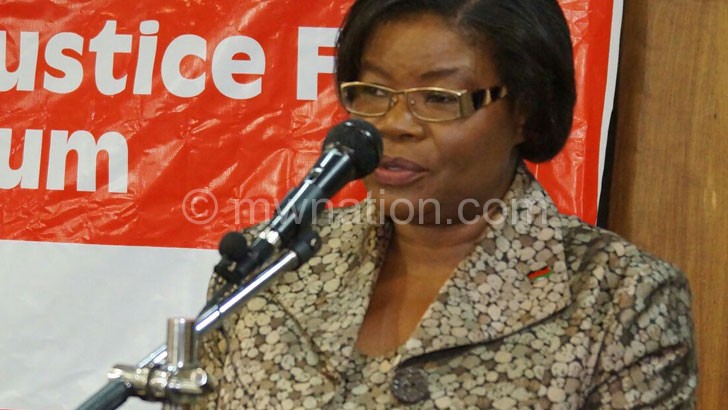Malawi to receive K6bn drought insurance payout
Malawi is expected, by the end of this year, to get $8.1 million (about K6 billion) drought insurance payout from the African Risk Insurance Limited (ARC).
This was revealed on Tuesday when Malawi was making its drought insurance experience presentation at a high level ARC meeting—which is part of the climate change summit, COP 22, currently underway in Marakesh, Morocco.
The submissions were made by the leader of Malawi’s delegation to COP 22 Dr Yanira Ntupanyama, chief director in the Ministry of Natural Resources, Energy and Mining.
Director of disaster risk reduction in the Department of Disaster Management Affairs (Dodma) James Chiusiwa confirmed the payout with The Nation on the sidelines of the meeting.
He said the resolution for the payout was adopted on October 8 in Washington, USA, when ARC hosted an extra-ordinary high level meeting.
The payout comes as a relief after government, earlier this year, failed to claim the money at the end of the covered growing season.

Government paid the ARC, an initiative of the African Union (AU), K2.9 billion—at the time of payment—as premium for an insurance policy for 2015/2016 production season. The maximum cover for the insurance was US$30 million.
Chiusiwa explained that the payout could not be triggered at the end of its covered growing season because of the challenges of the model ARC used.
To trigger a payout, ARC uses a satellite based model called Africa Risk Review (ARV), which used rainfall data to determine quantities received by a country.
The model, according to Ntupanyama’s submission, estimated that only 20 000 people would be food insecure while the Malawi Vulnerability Assessment Committee (Mvac) put the figure at 6.5 million.
This created challenges for ARC to trigger the payment, she said.
However, she added, ground truthing revealed that most farmers are growing shorter cycle maize variety (90 days) as opposed to longer cycle varieties (120 days) which was used in the original customations [estimations].
“ARC was moved to change its stand because after a re-customation was done of the model showed that by only changing the reference crop, the model estimated that two million people were affected by drought during the 2015/16 as opposed 20 000 in the initial customation,” she said.
Malawi has since challenged ARC to invest more in capacity building of technical officers in member States who are involved in the customisation of ARV model to ensure that the estimation is done properly to accurately reflect the situation on the ground.
The country has also called on ARC to review the performance of the ARV model and make necessary adjustments.
Asked what the K6 billion payout will be used for, Chiusiwa said it will complement the Humanitarian Response Plan already underway in the country.
Already, he said, the country still needs more to feed those going hungry in the current consumption season.
Specifically, he noted, the money will be used to purchase non-cereal food items such as beans, pigeon pea and others—which are running short.
“What is only remaining is for us to provide the plan of how we will use the money. One of which is for Treasury to open a special account, which does not take more than two days,” he said. n





